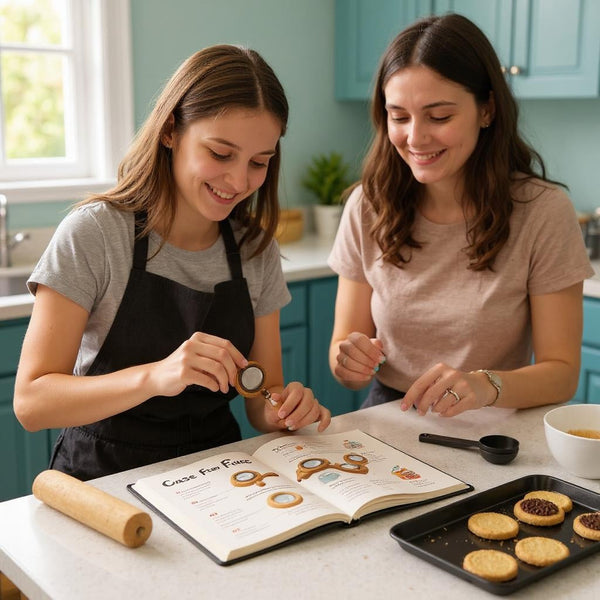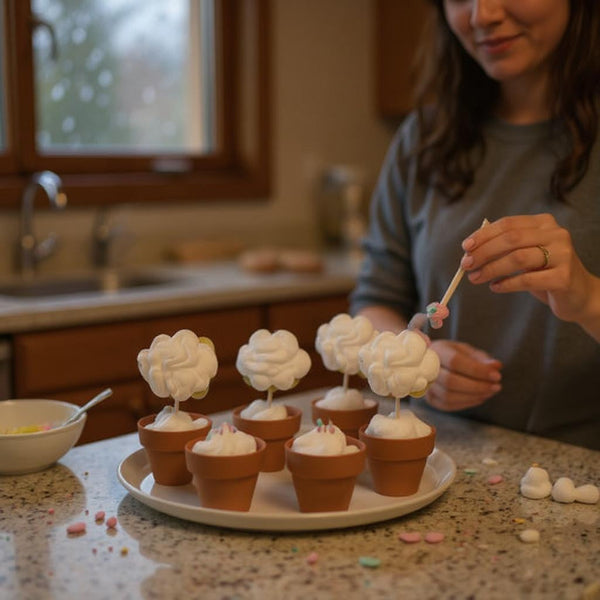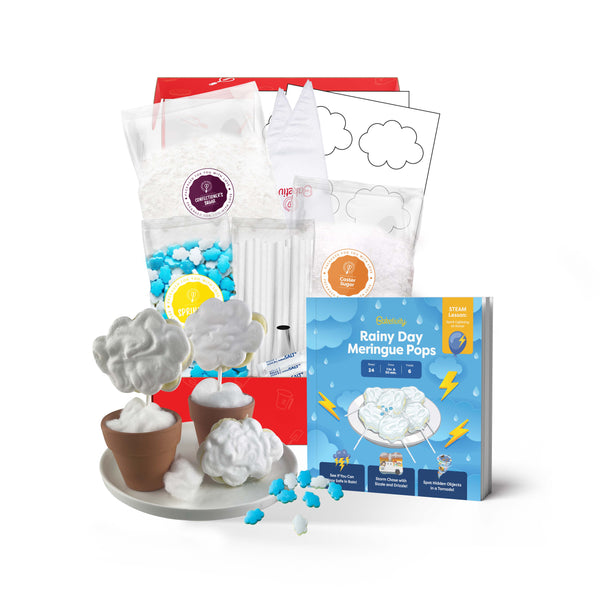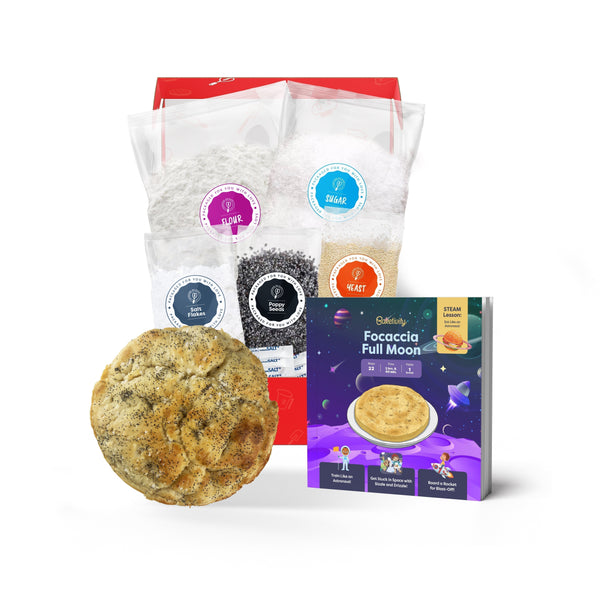Kids cooking classes are not only a fun way to keep your little ones occupied, but they also offer a range of educational benefits that can positively impact their development. In this article, we will explore the importance of cooking classes for kids and the various types of classes available. We will also discuss what to expect in a kids cooking class and provide tips on how to choose the right one for your child.
The Importance of Cooking Classes for Kids
Enrolling your child in cooking classes can have a significant impact on their overall growth and development. Not only do these classes teach children basic cooking skills, but they also help them
develop essential life skills that will be valuable in various aspects of their lives.
Developing Essential Life Skills
One of the key benefits of kids cooking classes is that they help children develop essential life skills. From
following a recipe to measuring ingredients, cooking requires attention to detail and precision. These skills contribute to their ability to problem-solve, communicate effectively, and think critically. By engaging in hands-on cooking activities, kids learn the importance of organization and time management, which are crucial skills that will serve them well in the future.
Encouraging Healthy Eating Habits
Another significant advantage of kids cooking classes is that they encourage healthy eating habits from an early age. In these classes, children are introduced to a variety of nutritious ingredients and learn how to prepare and cook wholesome meals. By actively participating in the cooking process, children develop a sense of ownership and pride in what they create, making them more likely to try new foods and make healthier choices.
Boosting Self-Confidence and Creativity
Participating in kids cooking classes can also boost children's self-confidence and creativity. As they learn new cooking techniques and create dishes from scratch, they gain a sense of accomplishment. They also have the opportunity to experiment with different flavors and ingredients, allowing their creativity to flourish. Seeing their creations being enjoyed by others further enhances their self-esteem and motivates them to continue learning and exploring in the kitchen.
Moreover, cooking classes for kids provide a platform for them to develop social skills and build friendships. In a cooking class setting, children have the opportunity to work together in teams, collaborate on recipes, and share their culinary creations. This interaction fosters teamwork, cooperation, and effective communication, all of which are essential skills for success in both personal and professional relationships.
Furthermore, cooking classes for kids can also be a gateway to exploring different cultures and cuisines. Through learning about various cooking techniques and trying out recipes from different parts of the world, children develop an appreciation for diversity and broaden their horizons. They gain a deeper understanding of different cultures and traditions, fostering a sense of global awareness and empathy.
In conclusion, enrolling your child in cooking classes offers numerous benefits beyond just learning how to cook. It helps children develop essential life skills, encourages healthy eating habits, boosts self-confidence and creativity, fosters social skills and cultural awareness. So why wait? Give your child the opportunity to embark on a culinary journey that will shape their growth and development in more ways than one.
Different Types of Kids Cooking Classes
There are various types of kids cooking classes available, catering to different interests and preferences.
Exploring the world of culinary arts can be an exciting journey for children, and there are numerous avenues to delve into. Whether your child has a sweet tooth, a curiosity for global flavors, or a preference for plant-based meals, there is a cooking class tailored to their interests.
Baking Classes for Kids
Baking classes for kids focus on teaching them the art of baking delicious treats such as cookies, cakes, and pastries. These classes often emphasize the importance of precise measurements and following recipes, while also allowing room for creativity through decorating and presentation.
Within the realm of baking, children can learn the science behind ingredients like flour, sugar, and eggs, understanding how they interact to create delectable desserts. From mastering the perfect cookie texture to decorating cupcakes with colorful frosting, baking classes offer a blend of precision and imagination for young aspiring bakers.
International Cuisine Classes
International cuisine classes introduce children to flavors and dishes from around the world. These classes provide a cultural experience, teaching kids about different countries and their traditional recipes. From Italian pasta to Mexican tacos, children get to expand their palate and try new flavors while learning about different cultures and their culinary traditions.
Exploring international cuisine not only broadens children's taste preferences but also fosters an appreciation for diversity and global culinary heritage. Through hands-on experience and tasting sessions, kids can develop a sense of curiosity and respect for various food traditions, sparking a lifelong interest in exploring different cuisines.
Vegetarian and Vegan Cooking Classes
With the growing popularity of vegetarian and vegan diets, there are also cooking classes dedicated to teaching kids how to prepare delicious plant-based meals. These classes focus on wholesome ingredients and teach children how to create balanced and nutritious vegetarian or vegan dishes that are both tasty and satisfying.
Vegetarian and vegan cooking classes empower children to experiment with a wide array of fruits, vegetables, grains, and plant-based proteins, showcasing the versatility and creativity of meatless cooking. From crafting colorful Buddha bowls to whipping up dairy-free desserts, these classes instill the importance of sustainability and mindful eating habits in young chefs, encouraging them to explore the vibrant world of vegetarian and vegan cuisine.
What to Expect in a Kids Cooking Class
When enrolling your child in a kids cooking class, it is helpful to know what to expect in terms of structure, safety measures, and parental involvement.
Structure of a Typical Class
A typical kids cooking class begins with an introduction and a review of the recipes and techniques that will be covered. The instructor will then guide the children through each step of the cooking process, ensuring they understand and follow the instructions. At the end of the class, the children usually get to enjoy the fruits of their labor and share their creations with their peers and family.
Safety Measures in Kids Cooking Classes
Safety is of utmost importance in kids cooking classes. Instructors emphasize the importance of
proper hygiene, such as handwashing and wearing aprons, as well as teaching children how to handle knives and other cooking tools safely. They also ensure that the cooking environment is well-maintained and free from hazards.
The Role of Parents in Kids Cooking Classes
The level of parental involvement in kids cooking classes varies depending on the age and preference of the child. Younger children may require more assistance from parents, while older children may be encouraged to work independently. However, in most cases, parents are welcome to observe and participate in the classes alongside their children, providing support and encouragement.
How to Choose the Right Cooking Class for Your Child
Choosing the right cooking class for your child involves considering their interests, the class size and instructor's experience, as well as the
class curriculum and recipes.
Considering Your Child's Interests
Take your child's interests into account when choosing a cooking class. If they are passionate about baking, a baking class would be a perfect fit. On the other hand, if they are curious about different cultures and cuisines, an international cuisine class may be more appealing. By aligning their interests with the class offerings, you can ensure that your child remains engaged and enthusiastic throughout the course.
Assessing the Class Size and Instructor's Experience
Find out about the class size and the instructor's experience before enrolling your child. Smaller class sizes often allow for more individual attention and interaction, ensuring that your child receives ample guidance and support. Additionally, an experienced instructor will have the skills and knowledge to effectively engage children and create an enjoyable learning environment.
Checking the Class Curriculum and Recipes
Review the class curriculum and the types of recipes that will be taught. Ensure that they align with your child's skill level, preferences, and dietary requirements. It is also beneficial to choose a class that incorporates a variety of recipes to provide a well-rounded learning experience.
Overall, kids cooking classes offer a wonderful opportunity for children to learn valuable life skills while having fun in the kitchen. Whether they become future chefs or simply develop a love for cooking, these classes contribute to their growth and development in numerous ways. So why not give your child the gift of fun and educational kids cooking classes?
Start Your Family Baking Adventure with Baketivity!
Ready to turn your kitchen into a fun and educational bakery? Join the Baketivity Baking Club and embark on a delightful journey of family bonding, creativity, and learning. Our baking kits, infused with quality ingredients and the joy of discovery, are designed to provide you with everything you need to create lasting memories. Embrace the art of baking and nurture your child's culinary talents today.
Join the Baking Club and let's bake up some fun!




